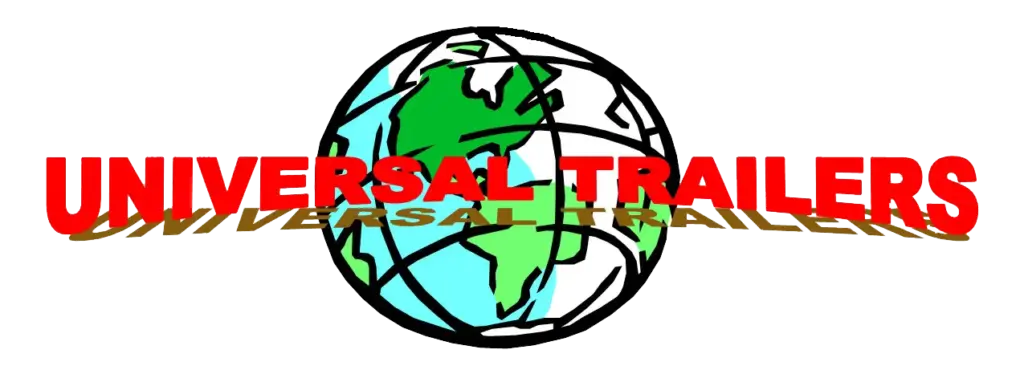Introduction
Custom-built trailers are valuable investments for businesses in many industries, from mobile pet grooming to food concessions, utility work, and beyond. To get the most out of your trailer and ensure it stays in peak condition for years to come, proper maintenance is essential. A well-maintained trailer not only extends its life but also maximizes your return on investment by reducing costly repairs and downtime. In this guide, we’ll explore practical tips and best practices for maintaining your customized trailer, ensuring it remains roadworthy and functional.
1. Regular Inspection and Cleaning
The first step in maintaining your custom trailer is conducting regular inspections and cleaning. Periodically check your trailer’s structure, axles, wheels, and moving parts for wear, rust, and any damage. Ensure that:
All fasteners and bolts are tightly secured.
Check the frame for any signs of rust, especially if your trailer operates in wet or coastal environments.
Clean the trailer regularly to remove dirt, road grime, and debris that can build up and cause long-term damage.
Regular washing and waxing help protect the trailer from the elements and prevent corrosion. A thorough cleaning inside the trailer, particularly if you’re hauling sensitive equipment or live animals, is equally important.
2. Tire Maintenance
Tires are one of the most critical components of your trailer. Proper tire maintenance will ensure safe transport and help avoid premature wear and tear. Here are a few key tips:
Check Tire Pressure Regularly: Under- or over-inflated tires can cause uneven wear, reduced fuel efficiency, and potential blowouts. Refer to your trailer’s manual for the recommended PSI and check tire pressure before every trip.
Inspect for Wear and Damage: Look for cracks, cuts, or bulges on the tires, which are signs of potential failure. Replace worn tires immediately to avoid hazardous situations on the road.
Rotate Tires: If your trailer is in constant use, rotating tires helps ensure even wear, prolonging tire life.
3. Brake System Maintenance
The braking system of your trailer is essential for safety, especially when carrying heavy loads. Proper brake maintenance will help ensure that your trailer stops when needed, preventing accidents.
Inspect Brake Pads and Drums: Over time, brake pads wear down and lose efficiency. Regularly inspect your brake pads and drums for wear and replace them as necessary.
Check Brake Fluid: If your trailer uses hydraulic brakes, ensure that the brake fluid is topped up and free from contaminants. Low brake fluid levels can lead to poor braking performance.
Test Electric Brake Systems: For trailers equipped with electric brakes, test the system regularly to ensure that all electrical connections are functioning correctly.
4. Electrical Systems Check
Your custom trailer may be equipped with a variety of electrical systems, from lighting to auxiliary power for refrigeration or other appliances. Keeping the electrical systems in top shape is essential to maintaining functionality:
Inspect Wiring and Connections: Look for frayed wires, loose connections, or signs of corrosion. Repair or replace damaged wiring immediately to avoid malfunctions.
Check Lights Regularly: Ensure that all running lights, brake lights, turn signals, and reflectors are working correctly. This is especially important for maintaining compliance with road safety regulations.
Battery Maintenance: If your trailer has a battery-powered system, check the battery’s condition and charge level. Replace any batteries that no longer hold a charge.
5. Lubrication of Moving Parts
To keep your trailer’s moving parts functioning smoothly, lubrication is crucial. This applies to components such as hinges, axles, and door latches.
Use the Right Lubricant: Ensure you’re using the correct type of lubricant for different parts of your trailer. Silicone spray or grease is commonly used for hinges and mechanical components.
Grease Wheel Bearings: Regularly inspect and lubricate the wheel bearings to avoid seizing, which can lead to costly repairs or dangerous breakdowns.
6. Weight Distribution and Load Management
Overloading or improperly distributing weight in your trailer can lead to significant issues, including suspension wear, tire blowouts, and axle damage.
Follow Weight Limits: Always adhere to the recommended weight limits for your trailer. Overloading can strain the trailer’s components and compromise safety.
Balance the Load: Properly distribute the weight of your cargo to avoid unnecessary stress on the trailer’s axles. Ensure that the heavier items are placed over the axles for stability.
7. Winterization and Seasonal Storage
If your trailer will be stored for an extended period or used in winter conditions, additional precautions are necessary to protect it from the elements.
Store in a Covered Area: When not in use, store your trailer in a garage, under a carport, or use a weather-resistant cover. This will protect it from UV rays, moisture, and snow.
Winterization: If your trailer has plumbing or refrigeration systems, ensure that all water is drained before winter to prevent freezing and potential damage.
Inspect Before Storage: Before placing the trailer in storage, clean it thoroughly, check for any issues, and make necessary repairs. Regularly check on your trailer during long storage periods to ensure no new problems arise.
Conclusion
Maintaining your custom-built trailer is crucial for ensuring its longevity, safety, and performance. Regular inspections, proper tire care, brake maintenance, and attention to electrical systems are key components of a good maintenance routine. By following these best practices, you can prevent costly repairs, reduce downtime, and maximize the return on your investment. Whether your trailer is used for hauling equipment, mobile businesses, or any other application, a well-maintained trailer will serve you reliably for years to come.
